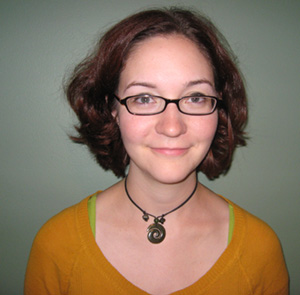 No ideology has so adversely permeated the principles on which America was founded more than religion. Many Christians have preempted and reinterpreted not only the Constitution, but history itself. It is ironic then that the damage caused by this historical revisionism hurts not only secularists, but theists (including Christians) as well.
No ideology has so adversely permeated the principles on which America was founded more than religion. Many Christians have preempted and reinterpreted not only the Constitution, but history itself. It is ironic then that the damage caused by this historical revisionism hurts not only secularists, but theists (including Christians) as well.
The first tactic used by those arguing that America is a Christian nation is to state that our founders were Christians. Thomas Jefferson and his deism notwithstanding, this is true for the most part. But claiming we are “one nation under God” because of the founders’ religion is tantamount to arguing that we are preordained to be a nation of powdered wig wearers based on George Washington’s choice of headgear.
What many fail to understand is that the religion of an institution’s creators is not the de facto religion of the institution. Surely if the founders had intended for religion to influence the government, they would have mentioned it in the nation’s bedrock document. For all the piety contemporary Christians imaginatively bestow upon the founders, the Constitution’s lack of even a nod toward Christianity is telling.
The best defense of our government’s secular nature comes from Thomas Jefferson. In his Virginia Statute for Religious Freedom, Jefferson posits that because God gave man free will, it is not the place of the government to dictate how or if its citizens should worship. Jefferson goes on to state that it is wrong to require a government’s citizens to support a religion idealistically, legally or monetarily.
The Virginia Statute for Religious Freedom is what many scholars refer to when seeking clarification of the Constitution’s First Amendment, which states “Congress shall make no law respecting an establishment of religion, or prohibiting the free exercise thereof.” The Establishment Clause gives Americans the right to worship as they please. It lets Jews observe the Sabbath, Muslims celebrate Ramadan and Christians choose their denomination. It also lets us opt out of religion altogether. Some pundits are quick to point out that the phrase “separation of church and state” does not literally exist in the Constitution, but any student of history can see that it was not our founders’ intention to create a theocracy.
The current issue of prayer before government meetings may seem innocuous on the surface, but it is damaging in multiple ways. Prayer in publicly funded settings is a covert way to proselytize. Often these invocations promote the Christian faith, which claims to be the one true path to salvation. Prayers have no place in a public arena.
Boards will sometimes opt for a “spiritual” moment of silence or reflection. This may appear to be a fair solution at first, but the implication that we should be reflecting on or thanking any sort of deity alienates nonbelievers and others who may not want to pray. When people do speak out against what has become a staple in the community, they are seen as troublemakers.
Any student of history can see that it was not our founders’ intention to create a theocracy.
America is experiencing a decrease in the number of people who claim religious affiliation. It is perhaps a relevant parallel that the Enlightenment thinkers so admired by the founders formulated their ideas of religious tolerance after witnessing the devastating effects caused by the religious fervor of their time. One of these philosophers, John Locke, espoused ideas that would later influence the Declaration of Independence. Oddly enough, many Christians cite the Locke-influenced Declaration of Independence as evidence that our country is based on Christianity.
Our nation was founded on secular principles because its founders were aware of the tyranny that can occur when a privileged group fashions laws that bolster its own self interests. Jefferson put it best in the Virginia Statute: “We are free to declare, and do declare, that the rights hereby asserted are of the natural rights of mankind, and that if any act shall be hereafter passed to repeal the present, or to narrow its operation, such as would be an infringement of natural right.”
Chelsea Carr, 26, Forest Hill, Md., a graduate of the Maryland Institute College of Art, is pursuing an M.A. in teaching at Johns Hopkins University with a focus on elementary education. She volunteers for Big Brothers Big Sisters and the Sexual Assault Recovery Center.
This is an excerpt from her honorable mention essay. She received a $250 scholarship from FFRF.

